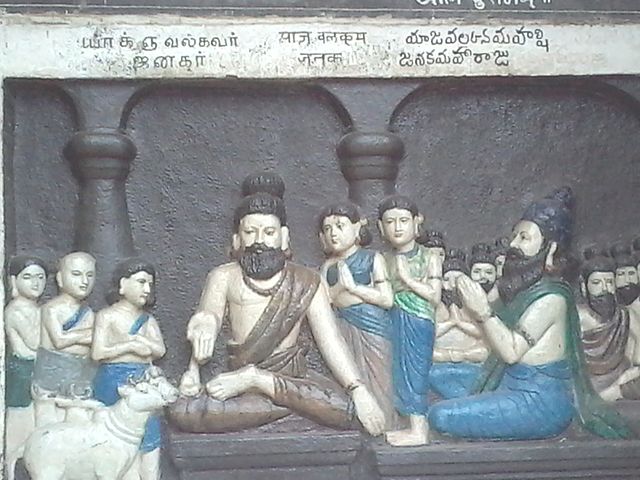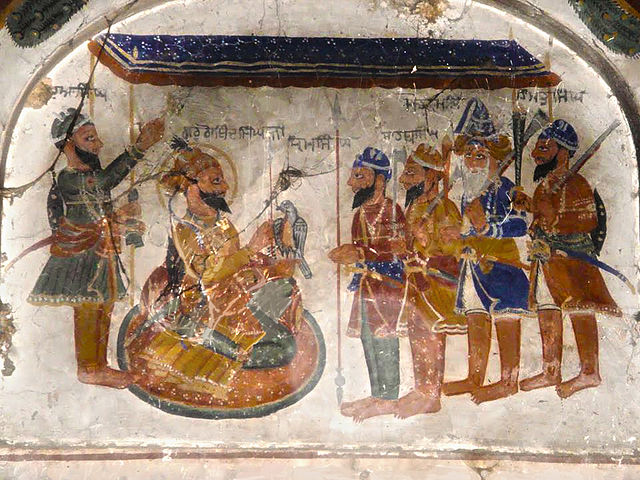Ajivika is one of the nāstika or "heterodox" schools of Indian philosophy. Believed to have been founded in the 5th century BCE by Makkhali Gosāla, it was a Śramaṇa movement and a major rival of Vedic religion, early Buddhism, and Jainism. Ājīvikas were organized renunciates who formed discrete communities. The precise identity of the Ājīvikas is not well known, and it is even unclear if they were a divergent sect of the Buddhists or the Jains.
An Ājīvika ascetic in a Gandhara sculpture of the Mahaparinirvana, circa 2nd–3rd century CE
On the left: Mahākāśyapa meets an Ājīvika and learns of the parinirvana.
Ashoka's Seventh Pillar Edict mentions Ajivikas: "Some Mahamatras were ordered by me to busy themselves with the affairs of the Samgha. Likewise others were ordered by me to busy themselves also with the Brahmanas (and) Ajivikas" (Line 25). Photograph of the portion of the 7th Edict, in the Brahmi script on the Ashoka pillar of Feroz Shah Kotla, New Delhi (3rd century BCE), with "Ājīvikesu" (𑀆𑀚𑀻𑀯𑀺𑀓𑁂𑀲𑀼) inscription.
The 3rd century BCE mendicant caves of the Ājīvikas (Barabar, near Gaya, Bihar)
Indian philosophy consists of philosophical traditions of the Indian subcontinent. A traditional Hindu classification divides āstika and nāstika schools of philosophy, depending on one of three alternate criteria: whether it believes the Vedas as a valid source of knowledge; whether the school believes in the premises of Brahman and Atman; and whether the school believes in afterlife and Devas.
Image: Yajnavalkya and Janaka
Image: Jain statues, Gwalior
Image: Rock cut Lord Buddha Statue at Bojjanakonda near Anakapalle of Visakhapatnam dist in AP
Image: Guru Gobind Singh Ji Gurdwara Bhai Than Singh








